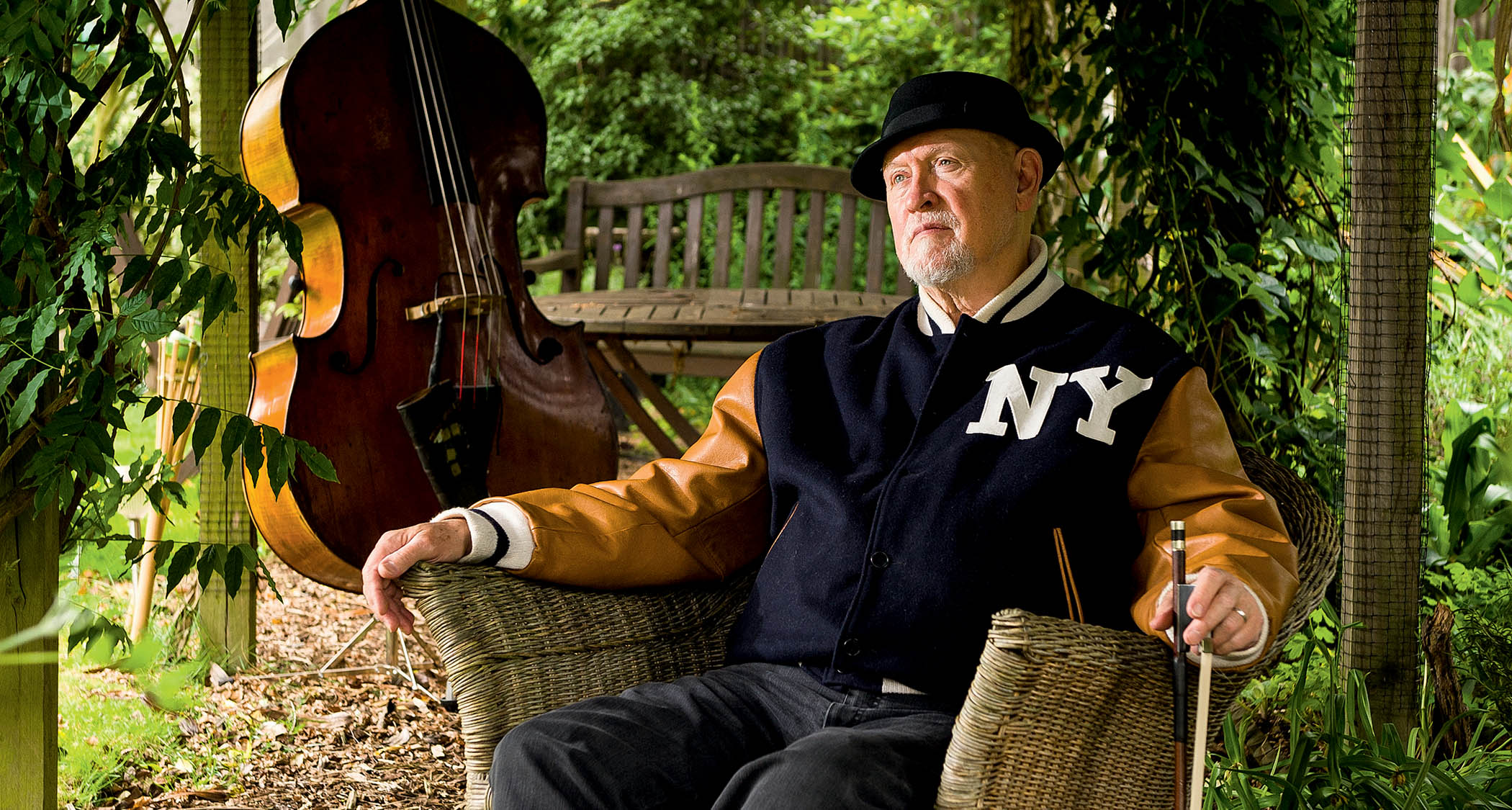Tame Impala's Kevin Parker: “I've rediscovered the joy of trying random chord shapes and seeing what happens. That's how so many great guitar parts were written”
The multi-instrumentalist behind Tame Impala on rekindling his love of the guitar as a tool for composition, advice for aspiring producers and why you don't need high-quality gear to create inspiring sounds
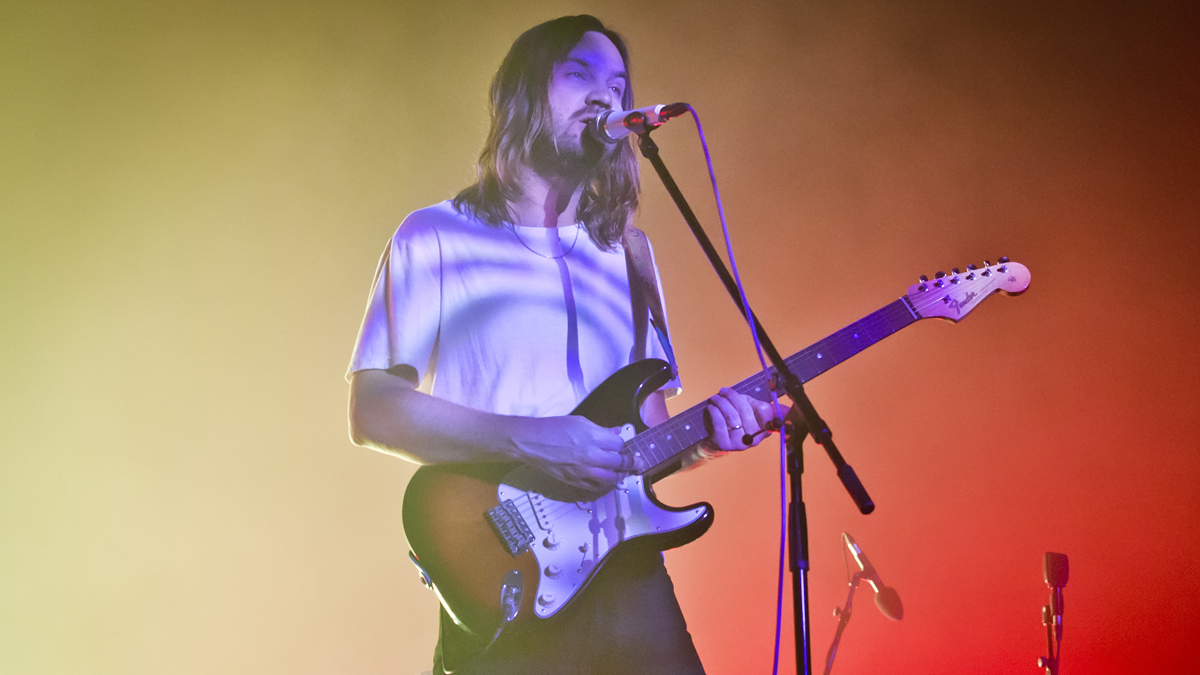
Kevin Parker – the force behind the psychedelic groove machine that is Tame Impala – is well known for recording and mixing sublime sonic confections that blend both vintage and modern studio production gear. When it comes to recording guitars, though, his approach concerns itself with capturing the final sound live: “It’s got to have the character that I'm intending for it while I'm playing it.”
Though Parker tours with a talented bunch of longtime friends including members of Australian band Pond, with whom he puts on rapturously attended concerts around the world, he records all the elements on his albums by himself. That includes everything on the recently issued B-sides follow up to 2020’s The Slow Rush.
Something of a musical magpie, Parker skillfully synthesizes disparate classic rock, synth-pop, disco and garage rock influences into fresh and novel recordings that have won him legions of fans and garnered more than a billion listens on Spotify.
Guitar World spoke with Parker to talk about the mysteries of songwriting, his affinity for extended chords and disguising electric guitars as bass guitars.
There are quite a few YouTube videos discussing how to get the “Tame Impala sound,” but what people really respond to are your songs and melodies. You’ve nailed that trick of having songs sound familiar yet new at the same time. Have you developed any particular songwriting habits?
“Honestly, I don't really have songwriting habits or any kind of method. I wish I did. I think I'd write a lot more music [if I did]. The only thing that I have is that it's essential for me to have a 'moment' with the song, whether it's late at night, when I'm just starting to write the song or halfway through it.
“I'll start a song and keep working on it until I have a moment with it. It's almost like getting to know someone, like having this moment of sheer... I don't know how to describe it, but it's just this really good feeling with the song, kind of like falling in love with it. I think it's really important.”
All the latest guitar news, interviews, lessons, reviews, deals and more, direct to your inbox!
Have you found over the years that you use the guitar more or less as you’re composing? Is it still integral to your songwriting process?
“Well, it used to be the only way I knew how to write songs because guitar used to be the only composing instrument I knew how to play, and the only instrument I owned. My palette of instruments has expanded over the years, so now I use different things to write songs. Guitar is the instrument I’m probably the most proficient on, so it's probably the easiest.
“At the same time, I seem to be the most creative when I don't know exactly what I'm doing. That's why it was nice when I started writing songs on the synthesizer, because I didn't really didn't know how to play one. With guitar, I'm like, 'Okay, that's D major, that's an E major 7th...' I know exactly what they are. It was nice to switch to an instrument where I didn't know what I was doing.
I've rediscovered a bit of mystery with the guitar. For a while I had this idea that I needed to be growing as a musician, so I needed to know exactly what I was doing
“But I've gone back to that way with guitar. I've rediscovered a bit of mystery with it, because for a while I had this idea that I needed to be growing as a musician, so I needed to know exactly what I was doing.
“I've rediscovered the joy of just trying random shapes and seeing what happens. I forgot that that was how so many great guitar riffs and chord progressions were written, just by feeling it out.
“I think there's a magic to that rather than going, 'Right, I'm gonna play A minor and then C major.' There's a magic to not knowing what you're doing, because it leaves it up to chance and for the universe to decide what happens. And then you can decide whether you like it or not.”
You mentioned major 7ths. I hear quite a few major and minor 7ths on The Slow Rush songs like It Might Be Time and Instant Destiny, and also on songs on InnerSpeaker. Can you talk about their appeal to you as a songwriter?
“I was using those kinds of chords before I knew what they were called; before I made an effort to learn theory beyond just major or minor. I just played what gave me the feeling that I was trying to get out of music, and it was later that I learned about 7ths and 9ths and chords like that.
“I just find them so evocative, so I would just naturally incorporate them into my playing. I'm not really a snob with chords. Like, I'll play a bunch of 9ths in a row, I don't care. If it gives me the feeling I want then that's all I care about.
“I love major 7ths. I’ve just loved them since I could play one, and I've loved using them. I do it without even thinking. Again, it's that thing of not knowing what I'm doing. I've written songs before where I didn't even know that they were in there, and it can be that I'll have stock major and minor chords, but then there's a melody over the top that makes major 7ths. Sometimes I'm not even aware I'm doing it, because that's what I naturally gravitate to.
“Obviously, a big part of the Tame Impala sound is the dreaminess of it, which again was never a decision in the beginning. It kind of just started: what I slowly found myself going towards because it gave me the most satisfaction and emotion in the music.
“I love minor 7ths because they sound kind of disco-ish. They've got a melancholy to them, you know? That might be why I love them so much, because it's that combination of happy and sad at the same time. I guess that ends up musically explaining how I feel, which is kind of the purpose of music.”
Lyrically, The Slow Rush seems like someone taking stock of where they are. I hear expressions of regret but also hopefulness. To me, it conveyed the sense that the future can be better than the past. Is that a fair statement?
“Absolutely. I think it's pretty open-ended at the end of the day. It's just me singing about what is relevant to me. I definitely didn't finish it with an idea that there was a concise message at the end of it. The songs are about trying to convey what it's like to experience the passage of time – those times in your life where you suddenly realize that time has passed and that the future lies in front of you.
“They can be really powerful moments of your life, whether the future is daunting or the past is filled with regret or nostalgia. These are just things in our life that make us realize that we’re these little human beings along a piece of string, you know. We're going along a scroll bar, if you like.”
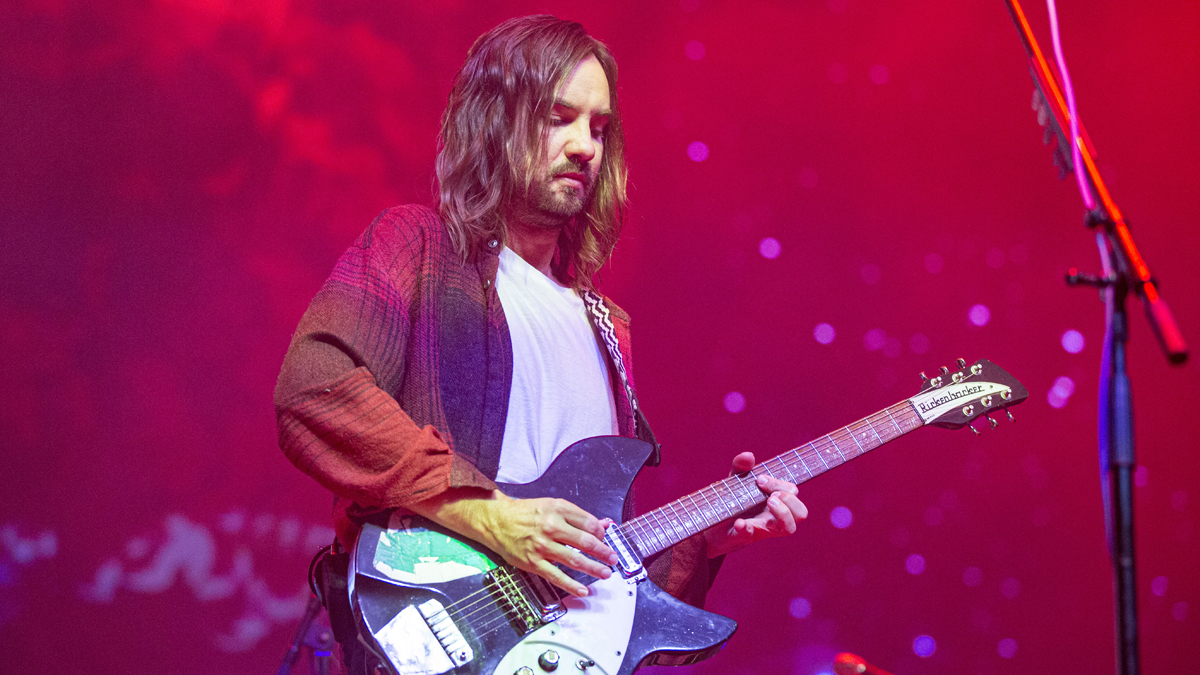
On The Less I Know The Better, it has a wonderful tone to it that almost sounds like a Rickenbacker, but I think I've read that it might actually be a guitar that's pitched down. Can you talk a little about the recording and how you came up with it?
“It's a guitar synth. Every sound on the first two minutes of the song is the Roland GR-55. I was staying at a little apartment with basically no gear, and I had my guitar with a synth pickup on it and just my computer. That's all I had. But I had this idea for the song, and I had to get it down.
“Everything you hear – the organ, string synth, guitar, bass guitar – is all just guitar synth. The guitar I had with me that day was, I think, a Stratocaster, but, you know, it doesn't really matter what the guitar was because the sound is so synthesized. But the bass synth is just this bass guitar modeler that you've got with the guitar synth.
“I write a lot of songs with that guitar synth, actually. Going back to what I was talking about 'not really knowing what you're doing', the guitar synth has a great way of bringing that out because it sounds like something else, you know.
“Like, you can play a barre chord with a piano setting, right, but the voicing of the chord is going to be completely different since it's a guitar. So, you can get some really interesting sounds that you've never heard before that sound new and mysterious, just by playing an electric piano via a guitar.
“But the bass guitar on The Less I Know The Better was this P-Bass preset on the guitar synth, which actually sounds terrible. Like, I forgot I put overdrive and something like chorus on it after I recorded it, because I was so desperate to get this song down. I was literally just messing around with bass notes in order to get something down so I could record this vocal melody and chords. It wasn't like, 'All right, I've got a riff.' It was the chords and the melody that I had, and I just recorded that bass.
“I was kind of just riffing in the traditional sense of the word. It wasn't meant to be a focal part of it, and it just ended up being an intrinsic part of the song. So, I kept it. The next day I listened back to it. I was like, 'Oh, that bass guitar riff. That's got to stay.'
“And what's funny is the take that's on the album is the one that I played within a few seconds of thinking of the song. I didn't retake it. I just played it. So, it's only about two bars of the riff, and it's just looped. That's why the song doesn't have it in the chorus or the outro, because by the time I recorded those parts it was weeks later, and I didn't have that guitar synth setup anymore at the studio. I had packed it up.
“So, I just did it there and then, and that's the take you hear. But before I put the overdrive on it, it actually sounded terrible. I pulled the session the other day and listened to the bass riff without all the overdrive and filter and stuff. It sounds hilariously bad.”
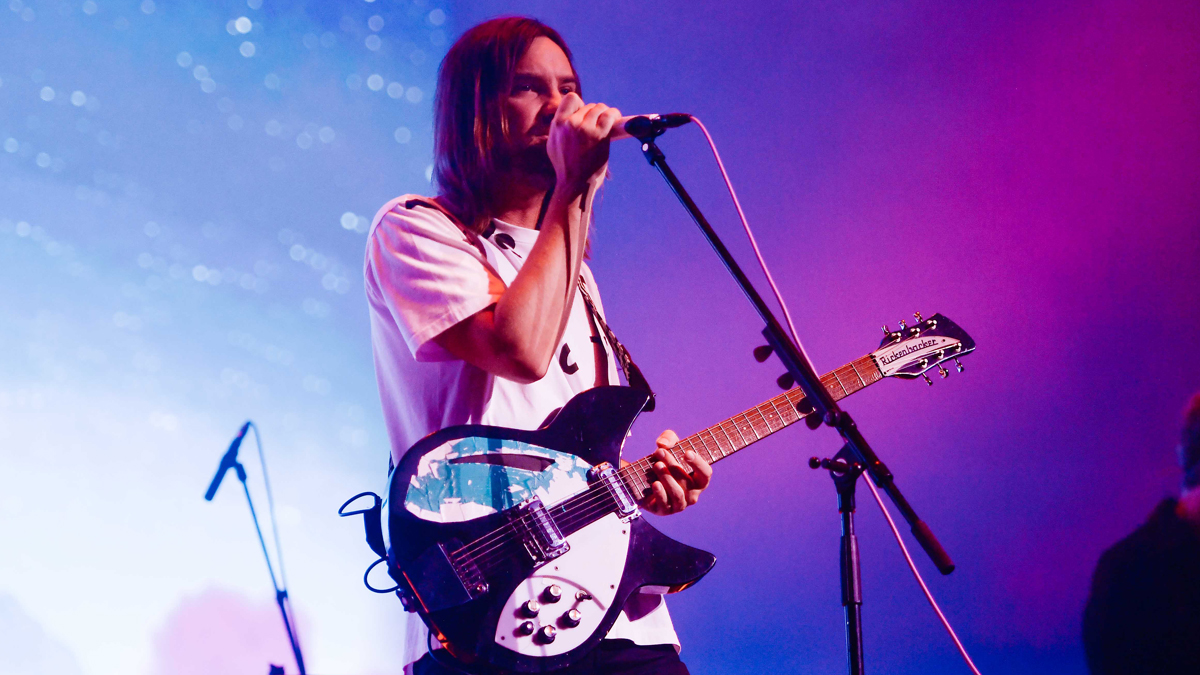
I think I've read that you record guitars direct through the Seymour Duncan KTG-1 preamp. Do you still use your pedalboard or do you use plugins to sculpt the sound?
“I almost never use plugins to shape sounds on guitar. For me playing guitar, playing into the sound, is so important because guitar is so vibe-y. It's such an expressive instrument. I need to hear that sound when I'm playing it. There's no way in hell I can play a riff or a characteristic guitar part without the sound that it's going to have. I can't play it just clean. I like to have all the effects and stuff running when I'm recording it.”
There's something about playing guitar, and if it sounds like Jimmy Page you feel a bit like you're Led Zeppelin when you're playing it
So, you're not recording and reamping the clean tone later?
“No, hardly ever. It just wouldn't be as fun, and I don't think it would get the best guitar parts out of me. There's something about playing a riff or playing a guitar part on top of the recording, doing overdubs or whatever. There's something about playing guitar, and if it sounds like Jimmy Page you feel a bit like you're in Led Zeppelin when you're playing it.
“I'm not interested in playing a Strat and then putting the Led Zeppelin sound on top after the fact. That's not going to get a Jimmy Page guitar part out of you. You've got to be hearing it and feeling it while you're doing it. Guitar is kind of sacred in that way where it's got to sound and feel like that while you're playing.”
Pedals have a very tactile, real-time quality to them.
“I mean, that's not to say that it has to be high-quality. There are heaps of guitar parts I've recorded where it's just through a digital Boss multi-effects thing, but it sounds vibe-y. So, it's going in, you know?”
Has your pedalboard gotten leaner over the years? Are you still using the Boss BD-2 Blues Driver, the Electro-Harmonix Small Stone and Holy Grail?
“I still have the Blues Driver and the Holy Grail. It hasn't really changed a lot in the last few years, because playing live we're playing the guitar sounds from those albums where I was using them. I haven't really needed to change it up in terms of what's on there.
“However, I do like swapping out different fuzzes to get a new fuzz flavor every now and then. Because fuzzes can be so big physically I'm trying to keep the real estate on my pedalboard down a bit so it doesn't take up the entire stage, you know?”
Is it true you like to put the drive and the distortion at the end of your signal chain?
“I wouldn't make a blanket rule like that, but the order of pedals is extremely important in terms of getting the sound that you want. I've got a kind of schematic in my head of what's going to sound good in what order. It's pretty important. It can make all the difference between something that sounds like a music shop and one that sounds classic, exciting and special.”
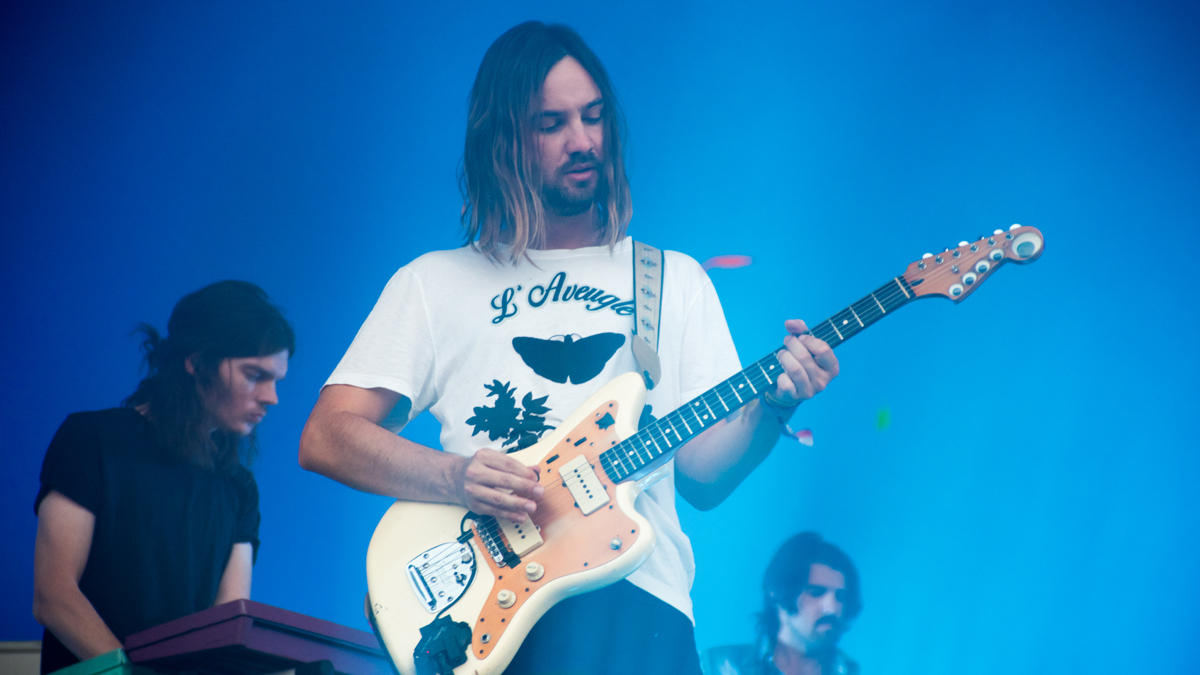
Do you have any words of advice for those bedroom producers or musicians out there who maybe feel like they don't know what they're doing?
“Well, for starters, it doesn't really matter if you don’t know what you're doing. Find a way to enjoy it. I still don’t know what the answer is, but the only thing that remains true is that, if you enjoy doing it you'll just keep on doing it, and it will naturally get better.
“If it's something that you've got to do enough times to get really good at, whether it's playing guitar or songwriting, it's very difficult to get there without it being fun. So, you've just got to find a way for it to be fun, find a way for it to be fulfilling.
It's not important that you use a certain guitar. I hate the idea that someone starting out sees me and says, 'I've got to play a Gibson or a Rickenbacker'
“And don't get bogged down by doing what you think you ought to be doing or what your peers insist is important. It's not important that you use a certain guitar. It's not important that it's expensive.
“It's not important that it's high-quality. I hate the idea that someone starting out sees me and says, 'I've got to play a Gibson or a Rickenbacker.' You don't. I just hate the idea that they think that that's important because it's not. What’s important is that you enjoy it, and the more you enjoy it the more you’ll do it and find your unique thing.”
- Tame Impala headline a number of festivals throughout 2022 including Hangout Fest and Primavera Sound in Barcelona. For more information, visit Tame Impala’s website.
Bruce is a freelance writer of features and interviews for Guitar World and MAGNET Magazine among other titles. He's played guitar in numerous garage bands with much better musicians who sometimes laugh at his Ovation Breadwinner.
